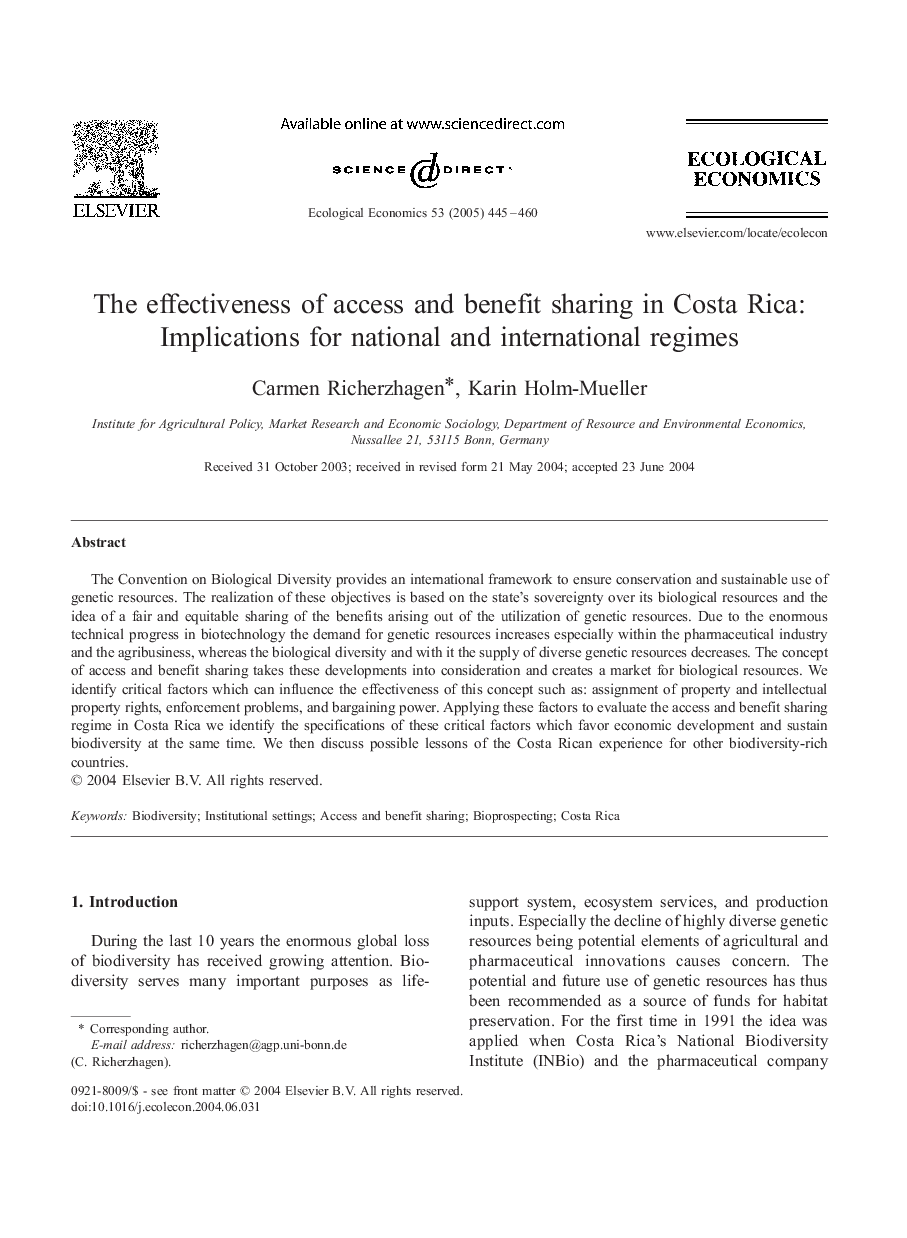| Article ID | Journal | Published Year | Pages | File Type |
|---|---|---|---|---|
| 9547795 | Ecological Economics | 2005 | 16 Pages |
Abstract
The Convention on Biological Diversity provides an international framework to ensure conservation and sustainable use of genetic resources. The realization of these objectives is based on the state's sovereignty over its biological resources and the idea of a fair and equitable sharing of the benefits arising out of the utilization of genetic resources. Due to the enormous technical progress in biotechnology the demand for genetic resources increases especially within the pharmaceutical industry and the agribusiness, whereas the biological diversity and with it the supply of diverse genetic resources decreases. The concept of access and benefit sharing takes these developments into consideration and creates a market for biological resources. We identify critical factors which can influence the effectiveness of this concept such as: assignment of property and intellectual property rights, enforcement problems, and bargaining power. Applying these factors to evaluate the access and benefit sharing regime in Costa Rica we identify the specifications of these critical factors which favor economic development and sustain biodiversity at the same time. We then discuss possible lessons of the Costa Rican experience for other biodiversity-rich countries.
Related Topics
Life Sciences
Agricultural and Biological Sciences
Ecology, Evolution, Behavior and Systematics
Authors
Carmen Richerzhagen, Karin Holm-Mueller,
